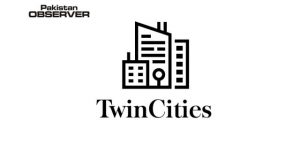Zubair Qureshi
Democracy in Pakistan faces a number of threats but enjoys widespread public support. Any and every threat to democracy is a threat to Pakistan.
This was concluded at a Roundtable Discussion on International Day of Democracy held to discuss potential threats facing democracy in Pakistan.
The Pakistan Institute of Legislative Development And Transparency (PILDAT) had organized the event.
Executive Director, Gallup Pakistan, Bilal Gilani, academician and activist Ammar Ali Jan and Executive Director, IBA, Dr Syed Akbar Zaidi were the key speakers on the occasion.
President PILDAT Ahmed Bilal Mehboob welcomed the panelists and formally started the discourse while Aasiya Riaz moderated the discussion.
Presenting an overview on what does national polling data suggest about Pakistani citizens’ views on democracy, Mr. Bilal Gilani, Executive Director Gallup Pakistan said that 3 in 5 Pakistanis hold the opinion that democracy is better than all other political systems.
A majority of Pakistanis also believe that freedom of speech, free elections, and equal rights are present in the country. Even though a majority, 63% are confident that the civilian government can govern the country, a large percentage does not have confidence in their economic management and law enforcement and in reducing corruption.
He said that increasing turn-out in Pakistan shows greater trust in the democratic process. When asked, people still show high support for military and technocratic governments. Trust in the judiciary is also on the rise. Public perception of politicians has not improved and 81% of Pakistanis believe that people enter politics for gains in power and influence, which is a threat to democracy.
Avenues for expression of the will of the people are necessary for democracy, said Dr. Ammar Ali Jan. Unlike the Arab world, democracy has been part of the conversation in our region since the 19th century where democracy was acknowledged as a preferred system but was never made available until people were fully ready. The contradiction is that the state believed it had to prepare citizens for democracy.
The same colonial mindset continues in Pakistan. Pakistan, he said, has been a part of the war calculus since the 19th century.










